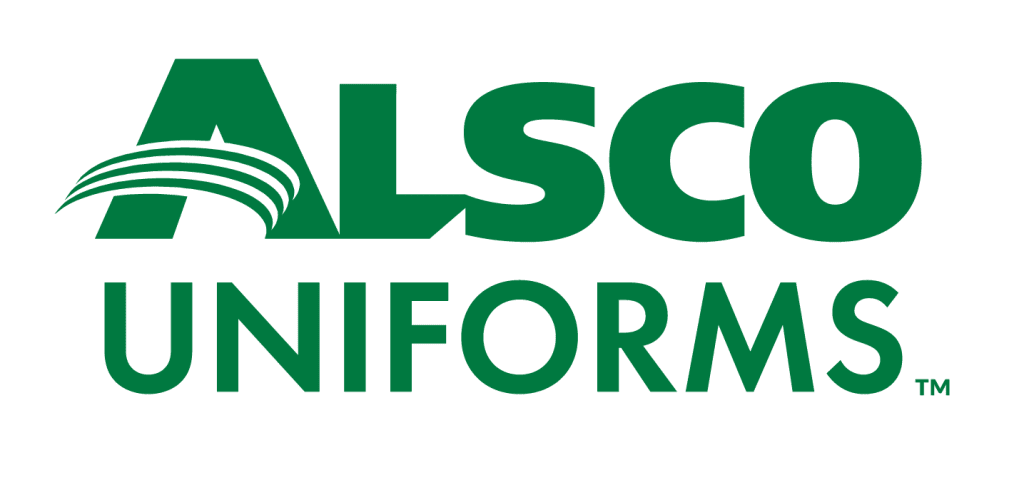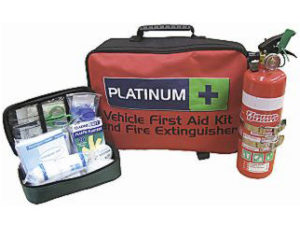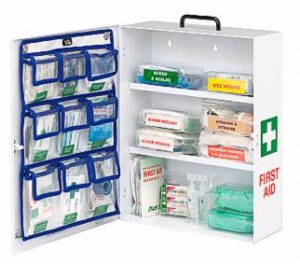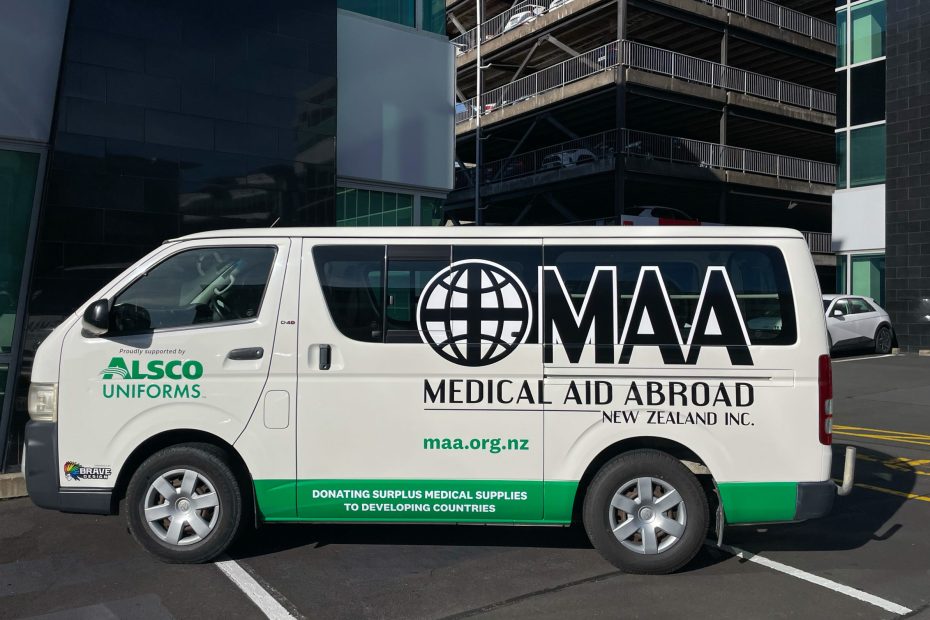When first aid kits are mentioned in conversation, they are typically linked to emergencies and risky activities.
Bungee jumping, hiking, backpacking… you name it.
Workplaces have varying levels of risk. It is worth noting what supplies you can have in your workplace that could help you or a colleague if a medical situation ever occurs.
With some of these items, you can build your own kit (kind of like build-a-bear) and customise it to suit your business needs.
Who Makes the Best Use of a First Aid Kit?
Planners
People who commit to ensuring they are prepared in case of any emergencies. Good planning is an ace up your sleeve.
In dire situations, first aid kits are useful in conditions when one is powerless to resupply or get third-party help. If this is the kind of planner you are, then this is for you.
To be a well-rounded planner, you will need more than a regular store-bought supply kit.
Look out for inconsistencies with what you think you need and what you actually need. This ensures you have enough stock and are better equipped to handle a crisis where help is either caught in traffic or not available.
Above all else, knowledge about first aid is required. If you would like some pointers or reminders, you can watch this video on 10 first aid mistakes explained by a professional.
You can also read more on workplace first-aid shortfalls that can be fixed in five guaranteed ways
Assuming you remember your first aid training, let’s dive into every possible item you could want in your workplace first aid kit.
What You Need to Know About First Aid Kits
Be aware that some of the products in a first aid kit can cause allergic reactions. This could include the latex in gloves.
You need to know your allergies and the allergies of those around you.
You should have records stored in an easy-access location about who is allergic to what This helps if there are too many people to keep track of.
If you suffer from a chronic condition or debilitating disease, you must only seek out specialised help. There is no shortcut in this case.
Finally, New Zealand is a culturally diverse country.
It could be life-saving to learn first aid vocabulary in English for those not too familiar with the dialect.
With these disclaimers, let’s dive right in!
Medicine
1. Pain and Inflammatory Medicine
Naproxen
This works as a general cramp reliever. Although it is most popular for menstrual cramps. It is definitely a must-have!
Aspirin
Also known as Acetylsalicylic acid, it comes as a package deal. It has an antiplatelet agent which acts as a blood thinner. The anti-prostaglandin reduces fever, inflammation and provides general pain relief.
It’s abilities as a blood-thinning agent need to be considered if you are bleeding, as aspirin can augment the flow of blood.
Ibuprofen
It works on the affected location in the body that causes pain and/or inflammation. It is best for inflammatory pain.
Codeine
It can be quite tricky to come across this, or even buy over the counter without a prescription. It’s a restricted substance in various places, but mostly used as a cough suppressant. It’s effective but can cause drowsiness or lightheadedness.
2. Topical Supplies
Burn Gel
This comes in handy when dealing with first and second-degree burns. If they go beyond this, extensive work on pain reduction and dead tissue will be needed.
Antiseptics
These are often used to reduce the chance of catching an infection on an open wound. They are quite versatile and antimicrobial.
This makes them useful in surgical application and general wound cleaning. This reduces the risk of putrefaction, sepsis and infections.
Antibacterial Soap
Hygiene shouldn’t be an afterthought. It is necessary to have soap around for general use. Always restock!
Hydrocortisone Cream and Emollients
These are used for itches, irritations, inflammation, and rashes. Emollients help ease dermatitis symptoms, which include eczema.
Be cautious of ‘contact dermatitis,’ which is caused by contact with irritants. Burning, itching, and redness occur.
3. Specialised Medicine
Phenylephrine
This is used for nasal and sinus congestion.
Doxylamine Succinate
Can’t sleep? This helps deal with insomnia, allergies, the common cold and other sleeping disorders. It falls under first-generation antihistamines and is quite versatile.
Antihistamines
These are good for dealing with allergies and work well with the sleeping aids listed above. They are re-purposed first-generation antihistamines with drowsiness as a major side effect.
Metformin and Insulin
These are relied on by individuals with type 2 diabetes. If there is anyone in your workplace who has this condition, consider looking into long-term solutions of stocking up on these medications.
Beta Agonists
Quite like Ventolin. For those who suffer from asthma, you know triggers can happen anytime. It works well dealing with minor attacks and needs to be present and accessible.
Ammonia Inhalant
For dealing with general lightheadedness and fainting, this is also referred to as a respiratory stimulant.
Penicillin
It is used to fight bacteria in your body. Extensive research dating far back means there is plenty of information about the side effects. Dosages are available and vetted after many years of common use.
Some people suffer allergic reactions to penicillin-based antibiotics. You need a prescription to get your hands on some, and it needs to be stored well.
Situation-Specific Kits
4. Vehicle and Portable First Aid Kits
This kit is important to have if your work involves a lot of travel. It could be frequent road trips for deliveries, meetings or tours.
It also extends to the operation of heavy machinery and equipment. Such situations create more room for accidents for you and your employees.
It is best to have them safe, especially if they are alone.
You could consider Alsco’s light and compact, portable first aid kits that can fit any nook and cranny. Better yet, they are colour-coded, and thus easy to locate in an emergency.
They are ideal for trucks, boats, machinery and much more.
5. Fracture Kit
Sling and Orthopedic Cast Plaster
It is possible to DIY your way through this, and that is useful information to have. Mesh slings are much better to use in relation to comfort, especially in hot weather when having a sling can be quite bothersome.
Cast plaster is a shell, often made from plaster or fibreglass. It encases an injured part of the body to stabilise and hold anatomical structures (most often a broken bone) in place until healing is confirmed.
Cotton Undercast Padding
Injuries need to be taken care of well, but comfort is also paramount to this process. This is needed to make a proper cast for the fracture once it has been reset.
6. Managed First Aid Kits
These kits are customised to meet your business needs.
Imagine having someone else regularly restock your kit every three months. You get quality hospital-grade material, regardless of your industry.
It will also be organised with colour-coded modules that work as guides for different emergencies.
Best yet, it is affordable because you are charged a single, all-inclusive annual fee!
Alsco’s managed first aid rental service takes care of everything.
7. General Trauma Kit
EMT Shears
They are designed for emergency purposes only. They are also known as trauma shears because they are meant to shear through cloth without running the risk of cutting you or your patient.
Gauze Bandages and Clips
They lack the sticky texture that other bandages have. They stay on with safety clips and make room for repositioning the bandage. The clips can also make the bandage more breathable.
Hydrogen Peroxide and Alcohol
Unlike other kinds of antiseptics, you can use hydrogen peroxide for oral use (rinse and gargle). Alcohol can be poured over dire wounds to minimise the risk of infection.
Duct Tape and Hand Sanitizer
Alcohol works with the same efficacy as a sanitizer, but emollients can be found in the medical composition. This quality mixture is kinder to your skin. Duct tape has so many uses! Find out more here.
Well, there you go!
You can now be more confident in your knowledge of first aid kits and what they should have. Keep in mind that you do not have to be the one to worry about the upkeep of your kit.
You can consider Alsco New Zealand for many more services than managed first aid kits.
Why choose Alsco?
- We are the best at offering both vehicle and workplace kits suited for your business.
- We will install and check them regularly for you.
- All these services are available for a single, all-inclusive annual fee.
Call us today.







